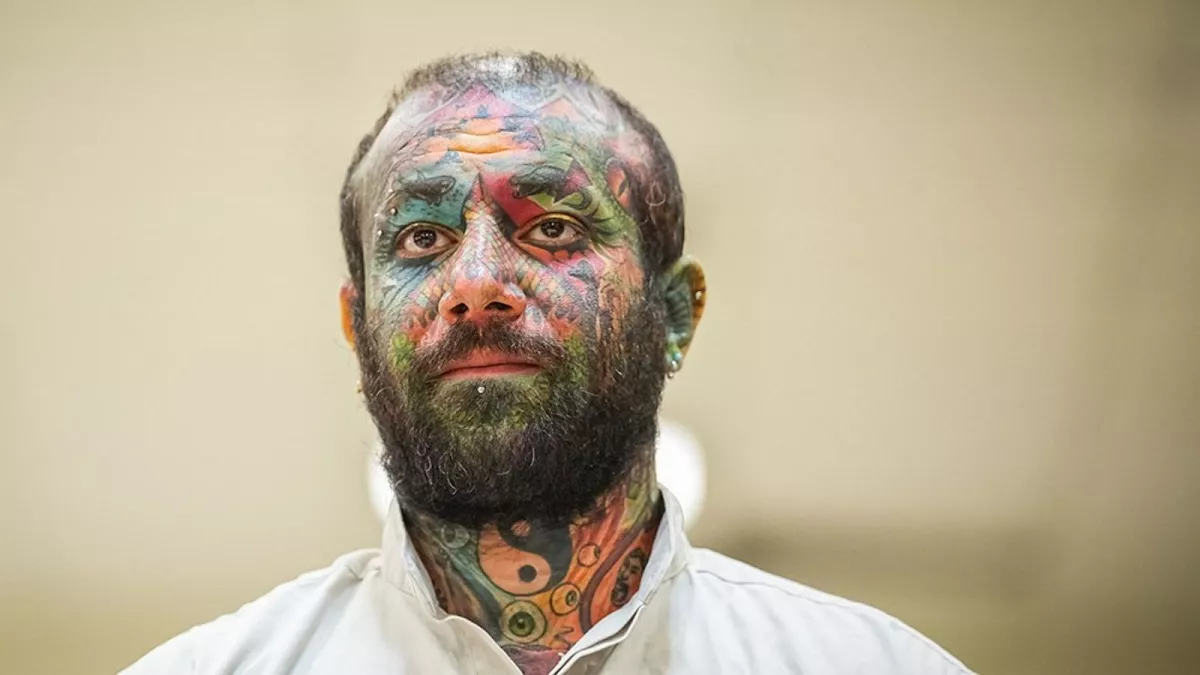The Iranian judicial system has once again captured global attention, this time with the case of Amir Hossein Maghsoudloo, popularly known as Tataloo.
The 37-year-old pop star, known for his distinctive style and controversial lyrics, has been sentenced to death on charges of blasphemy. While the verdict has yet to be finalized, the news has sent shockwaves through Iran and the international community.
The Shocking Verdict
Amir Tataloo’s rise to fame has been nothing short of extraordinary. As a musician blending rap, pop, and R&B, he gained a massive following, becoming a cultural icon for Iranian youth. However, his bold artistic expressions and outspoken nature often landed him in trouble with the authorities.
In December 2023, Tataloo was extradited to Iran from Turkey, where he had been living since 2018. His arrest marked the beginning of a series of legal battles that culminated in the recent death sentence.
The charges against Tataloo are centered on accusations of insulting the Prophet Muhammad, a grave offense in Iran’s theocratic legal system.
Read : Courageous Iranian Singer Who Performed Without Hijab Arrested
This is not the first time Tataloo has faced legal issues; he had been serving a five-year prison sentence for blasphemy and other offenses before his case was reopened at the prosecutor’s request. The retrial led to the imposition of the death penalty by Iran’s Supreme Court.
Read : Iranian Navy Warship Sahand Entirely Sinks Despite Rebalancing Efforts
Iranian media outlets, including Etemad and Jame Jam, reported the court’s decision, but judicial officials emphasized that the verdict is not final. Tataloo retains the right to appeal, leaving room for hope that the sentence could be overturned.
However, the singer’s supporters and international human rights organizations fear that the political climate in Iran may influence the court’s decision, leaving little room for justice to prevail.
A Polarizing Figure in Iran
Tataloo’s complex relationship with the Iranian regime has added layers of intrigue to his case. Early in his career, he was not seen as an outright dissident. In 2015, he released a song supporting Iran’s nuclear program, a move that aligned him with the regime’s narrative at the time.
This song and his subsequent appearance in a televised meeting with then-President Ebrahim Raisi suggested a certain level of compliance with the authorities.

However, Tataloo’s later works and public statements took a more rebellious tone, challenging societal norms and the regime’s strict censorship laws. He faced multiple accusations, including promoting “prostitution,” spreading anti-regime propaganda, and publishing “obscene content.”
His tattoo-covered appearance and outspoken demeanor made him a symbol of defiance for many young Iranians, but also a target for conservative factions within the government.
The current charges of blasphemy represent the culmination of years of tension between Tataloo and Iran’s judicial system. His case has become a lightning rod for debates about freedom of expression in Iran, where artists and activists often face harsh penalties for expressing dissent.
A Broader Context of Persecution
Tataloo’s case is unfolding against the backdrop of a broader crackdown on dissent in Iran. The country has seen a significant increase in judicial executions, with the United Nations reporting a staggering 901 executions in 2024—the highest number in nearly a decade. These executions are part of a larger strategy to suppress opposition and maintain control amidst growing unrest.
The heightened persecution in Iran extends beyond individuals like Tataloo. The judicial system has increasingly targeted activists, journalists, and ordinary citizens who dare to speak out against the regime.

The recent shooting at Iran’s Supreme Court, which claimed the lives of two judges specializing in national security cases, underscores the tense atmosphere and the high stakes for those caught in the crossfire of the regime’s power struggles.
For Tataloo’s supporters, his case is emblematic of the regime’s broader crackdown on cultural and artistic expression. International human rights organizations have called for urgent action to prevent the execution, citing concerns about the fairness of the trial and the use of the death penalty as a tool of repression.
The sentencing of Amir Tataloo to death for blasphemy has reignited global debates about human rights and freedom of expression in Iran. As the tattoo-covered pop star awaits the final verdict, his case serves as a stark reminder of the risks faced by artists and dissidents in authoritarian regimes.
While the appeals process offers a glimmer of hope, the outcome remains uncertain, particularly in a country where the judiciary often operates as an arm of the regime. For now, Tataloo’s fate hangs in the balance, a poignant symbol of the struggle for artistic freedom in the face of oppression.

